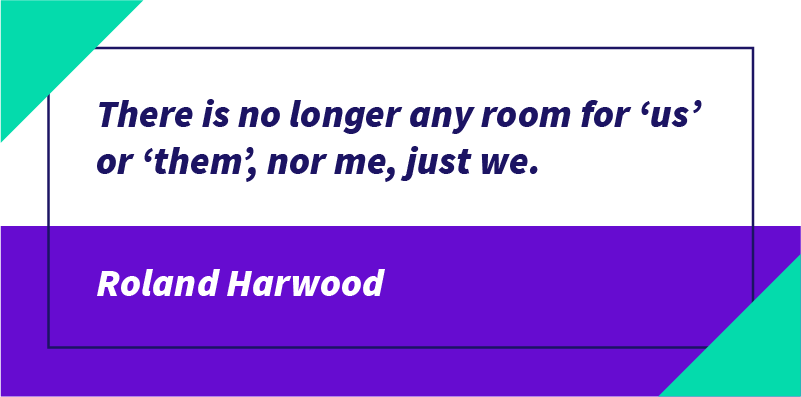Who Is Of Us?
What is the most exhilarating moment of your life? The chances are it was some kind of group experience. And what was the best and worst project you ever worked on? The chances are it was some kind of collaboration.

This is because, from the euphoria on the dance floor to the flashpoint of a riot, the ways in which people behave in groups can be both very good and extremely bad.
Recent research by Stephen Richter and colleagues – described here – shows that for most people the boundary between “us” and “them” is highly flexible, fluid and conditional. So the question we are all apparently asking ourselves a lot of the time is, “who is of us”? This is crucial because the social identities that we choose to align ourselves with closely govern our behaviour i.e. the limits of what we do and don’t do.
As we blew out the candles on our 8th birthday cake last week, we have been thinking about these themes as they related to 100%Open. We like to think about what we do as a bit like good bacteria, namely spreading the potential a group people when they come together with a shared purpose. All of our work is underpinned by the following behaviours:
- Give – Attention is the rarest and purest form of generosity. So lean in and listen carefully to others and show them you have been paying attention, especially if you don’t agree.
- Simplify – Our attention spans are shrinking so keep things as simple as possible, otherwise collaboration is impossible. We complicate to understand and simplify to act.
- Act – Doing is the best form of thinking. So defer judgement and resist analysis paralysis. Ultimately we will continue learning only if we always make new mistakes.
- Connect – Every person you’ll every meet knows something you don’t and all new ideas are simply the combination of old ideas. So connect compulsively and observe the overlaps.
We’ve learned from working with hundreds of organisations over the past 8 years that openness is contagious. No individual or organisation can afford to be isolated. So we always strive to give, simplify, act and connect with others.

In doing so we become more willing to share, which in turns means we are more likely to be trusted, which itself leads to new opportunities for relationships, which in turn leads to new innovation opportunities.
When embodying the behaviours above, there is no longer an “us” and “them”, only a “we”. As we enter our 9th year we are buoyed by the new connections we have made so far and look forward to reconnecting in the year ahead.